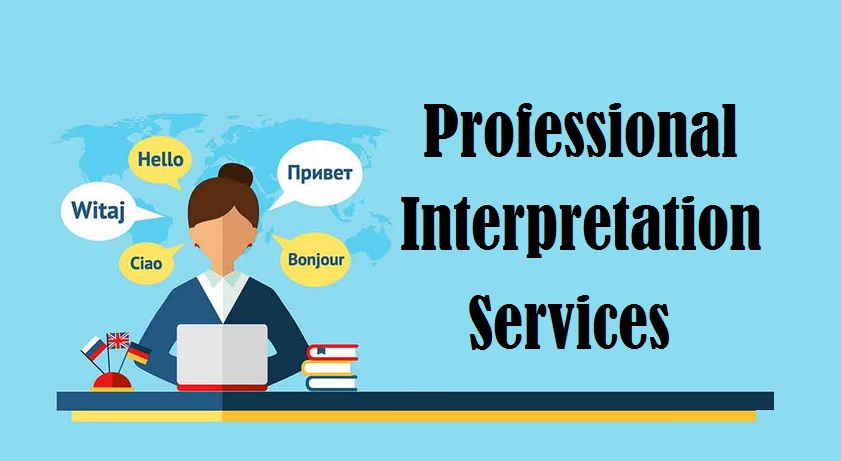Bridging Cultures and Communication Gaps: The Vital Role of Interpreting Services
With the rapid interconnection of the world, effective communication is becoming crucial day by day to foster understanding and collaboration among diverse communities. Interpreting services play a pivotal role in breaking down language barriers and facilitating communication across linguistic divides.

The Essence of Interpreting Services:
Interpreting services serve as linguistic bridges. They enable individuals who speak different languages to communicate conveniently. This invaluable support is essential in various settings, from international conferences and business negotiations to healthcare appointments and legal proceedings. Interpreters are trained professionals adept at converting spoken or signed language from one language to a targeted language while preserving the intended message's accuracy and nuance.
Types of Interpreting Services:
- Simultaneous Interpreting:
Simultaneous interpreters work in real-time. They translate spoken words into the target language while the speaker continues. Commonly used in conferences and large gatherings, this form of interpreting demands exceptional linguistic proficiency and quick thinking. - Consecutive Interpreting:
In consecutive interpreting, the speaker pauses to allow the interpreter to convey the message. This method is prevalent in smaller group settings, such as business meetings, legal consultations, or medical appointments. It requires not only linguistic skills but also excellent note-taking abilities. - Escort or Liaison Interpreting:
This form of interpreting involves accompanying individuals or small groups in various settings—for instance, medical appointments, business meetings, or social events. The interpreter facilitates communication between parties who speak different languages.
The Importance of Interpreting Services:
- Access to Essential Services:
Interpreting services are instrumental to ensure individuals have access to daily essential services, such as healthcare, legal representation, and education. By breaking down language barriers, interpreters contribute to equitable access and promote inclusivity. - Global Business and Diplomacy:
In the world of international business and diplomacy, effective communication is paramount. These services facilitate negotiations, trade agreements, and collaborations. It fosters positive relationships among countries and organizations. - Legal Proceedings:
Legal settings require precise communication, and interpreters are essential to ensure accurate interpretation of witness testimonies, legal consultations, and court proceedings. Their role is crucial in upholding the principles of justice and due process.
Challenges in Interpreting Services:
Despite the invaluable role these services play, several challenges exist within the industry. These challenges include the need for continuous professional development, the emotional toll of handling sensitive topics, and the demand for specialized knowledge in various domains.
Getting Together
Interpreting services serve as the linchpin in fostering effective communication across linguistic and cultural boundaries. As our world becomes increasingly interconnected, the need for skilled interpreters continues to rise. From facilitating international diplomacy to ensuring equitable access to essential services, interpreters play a vital role in shaping a more inclusive and interconnected global community. Embracing the importance of linguistic diversity and investing in professional services is not just a matter of communication; it's a commitment to understanding, respect, and collaboration.